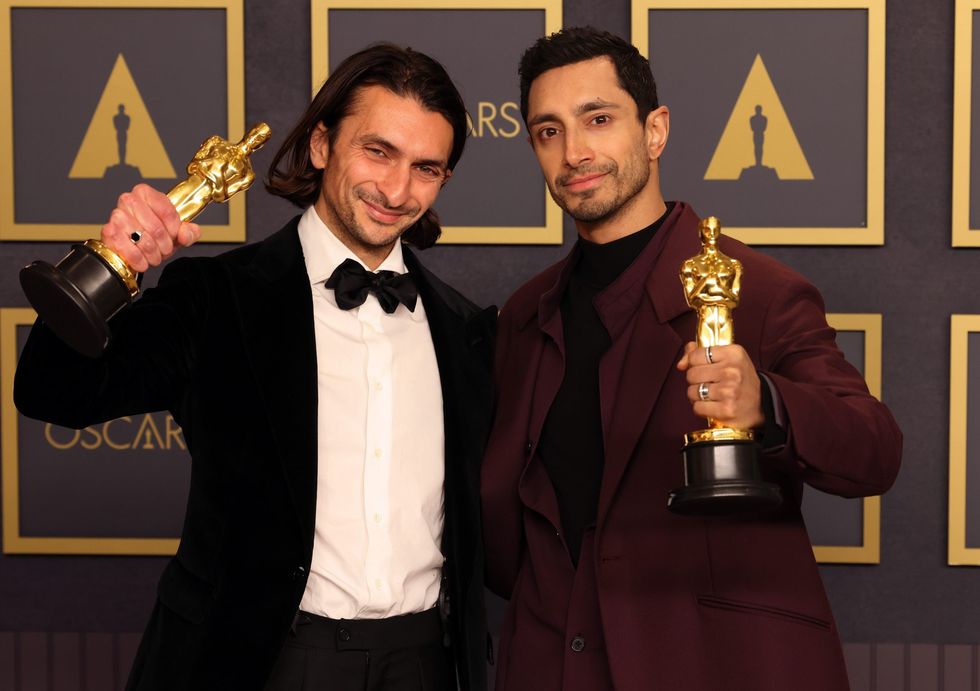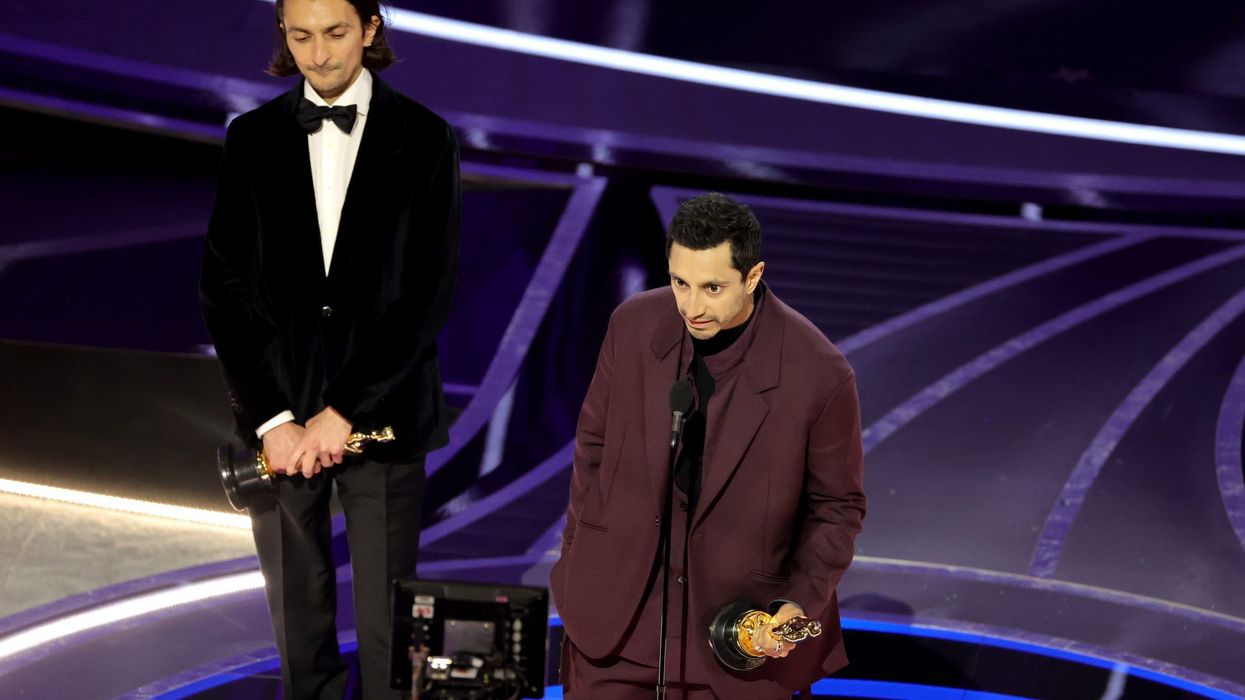British Asian star and musician Riz Ahmed stressed the unity of humanity in his acceptance speech as he won his first Oscar for the live-action short film, The Long Goodbye, at the 94th Academy Awards, last Sunday (27).
Ahmed and director Aneil Karia were presented the award as the glitzy ceremony resumed its pre-Covid format at the Dolby Theatre in Hollywood, Los Angeles.
The 39-year-old actor from London said, “In such divided times, we believe the role of story is to remind us there is no ‘us’ and ‘them’. There is just ‘us’.
"This is for everyone who feels like they don't belong. Anyone who feels like they're stuck in a no man’s land. You're not alone. We'll meet you there. That's where the future is. Peace."

Ahmed co-wrote The Long Goodbye along with Karia and also starred in it. The 11-minute film explores the ideas of inequality and racism in Britain as it depicts a suburban south Asian family preparing for a wedding. However, their happiness is shattered when a group of white-armed men violently barges into their home.
Also Read | Best Actor Will Smith resented a joke over his wife by punching presenter Chris Rock
At a screening in London last year, Ahmed explained how migrants are often asked where they are from.
“I think myself and Aneil have been asked that our whole lives. It’s a seemingly innocuous question, but also there’s a question underneath that question which is, ‘where do you belong?’” the star said at the time.
“The question is one that's kind of spinning around in our heads, particularly at the time when we made this film, at a time of rising xenophobia in the past few years.”
Backstage on Sunday night in Los Angeles, in an interview with Variety, Ahmed said it was important to “tell all kinds of stories, of all types of people”.
“A story is a place where you can imagine yourself in someone else’s experience, and by doing that, it increases your empathy, opens your heart and your mind, it broadens your horizon, about who you can relate to and how we are all the same.”
Ahmed, who is known for speaking up for migrants and refugees worldwide, also noted that “immigrants are being dehumanised, I think it’s really important to tell stories that change that.
“We’ve tried to show the challenges and dangers of where we might be headed. But it’s also to celebrate the joy and community of the migrant family at the heart of this story.
“So we ought to continue telling the stories that complicate and elevate our experience on screen so that people can really empathise.”
In their film, Karia and Ahmed have portrayed what it feels like to have an identity crisis, not being able to fit in, hated, and looked down upon in a country that caters to white middle-class people.
The Long Goodbye was released online at the time of the UK’s exit from the EU and Ahmed previously described the narrative as a breakup letter to Britain amid Brexit.
The Wembley-born British Pakistani star said in November, “I feel like as filmmakers of colour you spend your time telling stories, responding to someone else's narrative.
“And just being able to kind of strip all that away and go, ‘actually, here's what's going on in the back of my head and my deepest, darkest corners in my mind, and here's how I feel.’
“It's something very, very liberating about that and breaking the fourth wall.”
The film features music from Ahmed’s 2021 album of the same name, which reflects his identity as a British Pakistani artist.
In 2021, Ahmed became the first Muslim actor to be nominated for the Academy Award’s Best Actor category for his role in the film Sound of Metal.
The versatile actor played the character of a hearing-impaired drummer; however, he lost out to Anthony Hopkins.




